Interest in the Paleo and Ketogenic Lifestyle and related low carb diets is rapidly growing among health and fitness enthusiasts worldwide. Coming under various umbrella names they share many similarities; Paleo, Primal, Ketogenic or Low carb high fat (LCHF). These related approaches to dietary nutrition all involve eating 100% natural unprocessed foods, limiting low quality carbohydrates and starches, making an extra effort for organic grass-fed meats and utilizing more healthy fats like coconut oil. Through making subtle changes to the quality of our foods as well as how we move our bodies, hundreds of thousands of people around the world have lost weight, gained muscle and become free from chronic ill health. Most importantly they have found a lifestyle that is relatively easy to maintain and produces measurable results, so that keeping motivated is easy.
 The Evolutionary Background: Our ancient paleolithic ancestors lived from around 2.5 million years ago to 10,000 years ago and their time ended with the discovery of agriculture and gradual move away from a hunter gatherer existence to that of ever complex communities and dependency on agriculture. This past 10,000 years have been just a brief flash on an evolutionary time scale yet our human lifestyles have changed in innumerable ways. Our paleolithic ancestors lived a life of hardship and physical intensity while consuming a diet of wild vegetables, fruits, nuts, fish and meats with frequent famine and fasting due to seasonal changes in food supply. This past 10,000 years has seen our lives become “civilized” with the advent of excess food production and grain storage allowing for the development of towns, cities and the rise and fall of empires. Subsequently life has become more comfortable, diets have shifted to be predominantly grain based, less physically demanding and periods of famine have decreased.
The Evolutionary Background: Our ancient paleolithic ancestors lived from around 2.5 million years ago to 10,000 years ago and their time ended with the discovery of agriculture and gradual move away from a hunter gatherer existence to that of ever complex communities and dependency on agriculture. This past 10,000 years have been just a brief flash on an evolutionary time scale yet our human lifestyles have changed in innumerable ways. Our paleolithic ancestors lived a life of hardship and physical intensity while consuming a diet of wild vegetables, fruits, nuts, fish and meats with frequent famine and fasting due to seasonal changes in food supply. This past 10,000 years has seen our lives become “civilized” with the advent of excess food production and grain storage allowing for the development of towns, cities and the rise and fall of empires. Subsequently life has become more comfortable, diets have shifted to be predominantly grain based, less physically demanding and periods of famine have decreased.
The past 70 years has seen a further dietary shift with ever increasing amounts of refined processed foods contaminated with industrial chemicals, pesticides and genetically modified ingredients. When combined with our ever increasing sedentary lifestyles then the sharp increase in obesity and chronic metabolic diseases such as diabetes has risen to pandemic proportions. We can observe much from 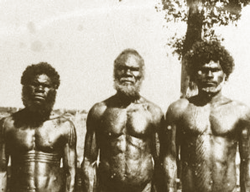 the last nomadic hunter gatherers that still inhabit the remote parts of our planet. For example, a study with a group of 10 middle-aged and overweight urban Australian aboriginals who had developed adult onset diabetes, were given the opportunity to return to a hunter gatherer lifestyle for 7 weeks. In this study it was revealed that when they were returned to the lifestyle of their ancestors, then after a short time they lost weight and reversed their diabetes and unhealthy lipid profile.
the last nomadic hunter gatherers that still inhabit the remote parts of our planet. For example, a study with a group of 10 middle-aged and overweight urban Australian aboriginals who had developed adult onset diabetes, were given the opportunity to return to a hunter gatherer lifestyle for 7 weeks. In this study it was revealed that when they were returned to the lifestyle of their ancestors, then after a short time they lost weight and reversed their diabetes and unhealthy lipid profile.
Our bodies require the same simple healthy nutrition that they have required for thousands of years from fresh foods and ample exercise. Most importantly, we need to learn what not to eat and with the billions being spent on promoting, advertising and lobbying the latest processed chemical laden “franken-food” from big business then it has become increasingly difficult. Even worse, much of this dietary disinformation is being promoted by Governments, Doctors, Dieticians and Nutritionists that rely on the “support” of big business for their daily bread.
How to Improve my Diet and Health?
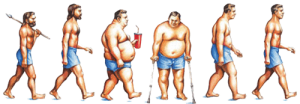 The influence of existing unhealthy food addictions, genetics, sedentary lifestyles and health problems all converge to making healthy dietary changes challenging. However, incorporating Paleo / Ketogenic Principles and Coconut Products into your diet is a proven method to assist in making the process of weight loss and health improvement much easier. A sign of consuming health supporting foods is that we can eat to our full satisfaction, we should not experience sugar carvings due to blood sugar spikes and crashes shortly after eating (that results in between meal snacking) and we should have an abundant energy and motivation for keeping active. These effects are the net result of following the dietary recommendations given here and thousands of people around the world have regained their health as a result of these very steps.
The influence of existing unhealthy food addictions, genetics, sedentary lifestyles and health problems all converge to making healthy dietary changes challenging. However, incorporating Paleo / Ketogenic Principles and Coconut Products into your diet is a proven method to assist in making the process of weight loss and health improvement much easier. A sign of consuming health supporting foods is that we can eat to our full satisfaction, we should not experience sugar carvings due to blood sugar spikes and crashes shortly after eating (that results in between meal snacking) and we should have an abundant energy and motivation for keeping active. These effects are the net result of following the dietary recommendations given here and thousands of people around the world have regained their health as a result of these very steps.
A good place to start is by replacing your current processed oils and refined sugars and flours with Coconut Oil, MCT Oil, Coconut Butter and Coconut Flour in cooking, baking, drinks, salads etc. The next step is to create nutritional balance in your family’s overall diet. The major dietary imbalance arises from excess of processed foods, regular supermarket variety oils and margarine used in cooking along with excess grains / refined carbohydrates / sugars. Nutritional deficiencies arise from insufficient vegetables and fruits with their essential phytonutrients, fibers, vitamins and micronutrients. Basically, what we accept as a “normal” diet is far from “optimal” and we can make informed changes immediately that can positively impact our health, longevity and freedom from disease.
Why the Traditional Food Pyramid has Failed
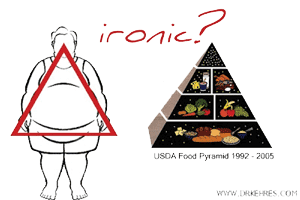 The food pyramid that most of us were brought up with has greatly contributed to the growing obesity rates globally. Old-school Doctors, Nutritionists and Dieticians are still recommending an outdated view on diet that has fallen far short in educating us to make positive changes to our family’s health. The problem begins when the foundation is seriously flawed. Modern diets in both the West and Asia are based on a foundation too heavily weighted towards refined, processed and high glycemic carbohydrates. It is inevitable that if we base our diet on a foundation of nutritionally deficient, processed and highly allergenic diets then obesity, blood sugar imbalances and a host of inflammatory health problems will follow. The worst outcome of the “Nutritional Pyramid” view on diet is that it plays directly into the hands of “big business” interests and the junk food industry and their goal to keep us addicted to sweet, processed “comfort” foods and drinks. The epidemic in childhood obesity over the past 20 years has been the final wake up call and this has led to a complete 180 degree rethink on human diet and nutrition.
The food pyramid that most of us were brought up with has greatly contributed to the growing obesity rates globally. Old-school Doctors, Nutritionists and Dieticians are still recommending an outdated view on diet that has fallen far short in educating us to make positive changes to our family’s health. The problem begins when the foundation is seriously flawed. Modern diets in both the West and Asia are based on a foundation too heavily weighted towards refined, processed and high glycemic carbohydrates. It is inevitable that if we base our diet on a foundation of nutritionally deficient, processed and highly allergenic diets then obesity, blood sugar imbalances and a host of inflammatory health problems will follow. The worst outcome of the “Nutritional Pyramid” view on diet is that it plays directly into the hands of “big business” interests and the junk food industry and their goal to keep us addicted to sweet, processed “comfort” foods and drinks. The epidemic in childhood obesity over the past 20 years has been the final wake up call and this has led to a complete 180 degree rethink on human diet and nutrition.
Creating Balance
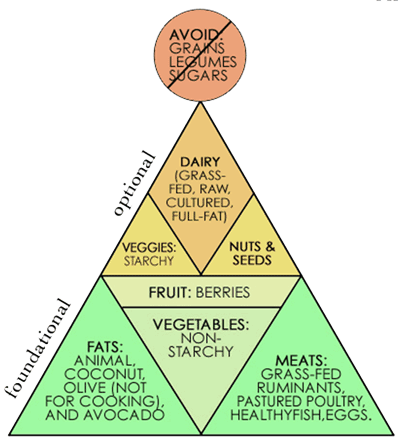 At Coconut Oil Malaysia we recommend returning to natural and organic foods, with a foundation of healthy fats and oils, antioxidant and phytonutrient rich vegetables and fruits, organic meats, fish and nuts. Coconut Oil, Coconut Flour and Coconut Sugar are recommended to gradually replace their processed and refined equivalents.
At Coconut Oil Malaysia we recommend returning to natural and organic foods, with a foundation of healthy fats and oils, antioxidant and phytonutrient rich vegetables and fruits, organic meats, fish and nuts. Coconut Oil, Coconut Flour and Coconut Sugar are recommended to gradually replace their processed and refined equivalents.
The best place to start improving your diet is with your shopping cart and what you put into it (and what you don’t). Then look at your current level of health and weight goals and weekly exercise / activity level. For adults, the more active your lifestyle then the more flexible you can be on the addition of grains (rice, bread, pasta etc.) but generally it is only athletes and those involved with manual labour that may require higher glycemic carbs from time to time. As the food pyramid here shows, for the majority of people on the daily struggle to control weight gain, then grains should be avoided and replaced with a foundation of healthy fats, low GI vegetables and grass-fed meats, which is an actual balanced diet of fresh unprocessed foods. To learn more about the Glycemic Index, click here.
The basic core health philosophy of the Paleo Diet involves an understanding of the following food categories:
Fats and Oils
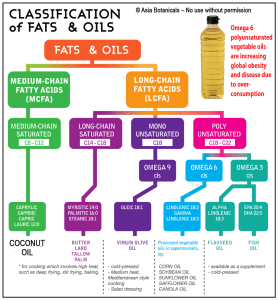
Making widespread changes to the quality and composition of the oils and fats we consume is the principle pillar of adopting a Keto, Paleo or Low Carb High Fat lifestyle. We recommend cooking and preparing foods and drinks only with Coconut Oil, MCT Oil, Virgin Olive Oil, Macadamia Oil, Grass-fed Butter (if no dairy intolerance is present) and animal fat from grass-fed free range animals. Every cell in our body is made up of fatty acids and with a diet high in healthy fats as our ancient ancestors would have consumed, forms the basis of optimum health, energy and cellular nutrition. This information will come as surprise to many but the revolution in throwing off the outdated dietary recommendations about fats has been well underway for the past 20 years. It does require a deeper understanding to come to grips with how far we have been misled in this area and I recommend making the journey to investigate this further through the many great researchers that have authored numerous books and have active blogs providing much of the information you need to get started, such as Mark Sisson, Nora Gedgaudas, Robb Wolf and David Perlmutter MD, just to name a few.
Coconut Oil and Ketones
Most importantly, once we make the shift to becoming “fat adapted” and have the metabolic flexibility to not only burn sugar but to burn fat as an energy source as well, then our weight and health goals can be more easily achieved. Ketones are a group of compounds that are normally only produced during fasting and are considered the clean cellular fuel produced from burning body fat for energy and that are being increasingly found to have therapeutic effects in many disease conditions. However we can achieve the same effect without having to fast for long periods of time when we eat healthy fats, especially Medium Chain Triglycerides (MCT’s) found in coconut oil and MCT Oil that produce the highest amount of ketones, far exceeding all other fat sources. To get this effect we only need to reduce our daily carbohydrates and the process to gradually make this switch and all the best recipes to make it possible are plentiful on the internet!
The Dangers of Excess Omega 6 Polyunsaturated Oils in our diet.
We have become addicted to the Omega 6 polyunsaturated vegetable oils (basically everything you see on the supermarket shelves in the cooking oil section) however these cheap & convenient oils come at a price to our health that has been kept out of the public attention. When heated (as all cooking oils must be) polyunsaturated and monounsaturated vegetable oils rapidly oxidize and as they are made of predominantly long chain fatty acids with little antioxidant capability in the face of heat reactions, they form inflammatory oxidation molecules that contribute to chronic inflammatory disease and the majority of our arterial cholesterol deposits. On the other hand, Coconut Oil is predominantly Medium Chain Triglycerides (MCT’s) and has the highest antioxidant saturation of all vegetable oils and its beneficial components are not damaged with normal cooking or frying temperatures. These MCT’s such as Caprylic, Capric and Lauric Acid have numerous health benefits and promote weight loss by enhancing metabolism when used as part of a healthy balanced diet, as mentioned elsewhere in this website.
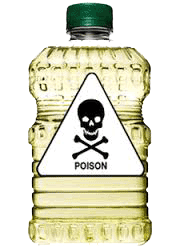 Our ancient evolutionary ancestors consumed approximately 2 parts of Omega 6 oils to every 1 part of Omega 3 oils (a 2:1 ratio) from the meats, fish, eggs, nuts and vegetables they consumed in their hunter-gatherer diets. Today, most modern diets fall between a 20:1 to 40:1 ratio. The problem here is that Omega 6 fatty acids are regulators of inflammation in our body and while this is an essential requirement in small amounts, in excess then it is a major contributor to inflammatory conditions such as heart disease (most arterial plaques are made of oxidized polyunsaturated oils), cancers, depression and Alzheimer’s, rheumatoid arthritis, diabetes, ulcerative colitis and many more. The excess of the omega 6 vegetable oils we consume also quickly become deposited as stubborn fat and is a factor in the growing obesity epidemeic. Where margarine and shortening is concerned then
Our ancient evolutionary ancestors consumed approximately 2 parts of Omega 6 oils to every 1 part of Omega 3 oils (a 2:1 ratio) from the meats, fish, eggs, nuts and vegetables they consumed in their hunter-gatherer diets. Today, most modern diets fall between a 20:1 to 40:1 ratio. The problem here is that Omega 6 fatty acids are regulators of inflammation in our body and while this is an essential requirement in small amounts, in excess then it is a major contributor to inflammatory conditions such as heart disease (most arterial plaques are made of oxidized polyunsaturated oils), cancers, depression and Alzheimer’s, rheumatoid arthritis, diabetes, ulcerative colitis and many more. The excess of the omega 6 vegetable oils we consume also quickly become deposited as stubborn fat and is a factor in the growing obesity epidemeic. Where margarine and shortening is concerned then 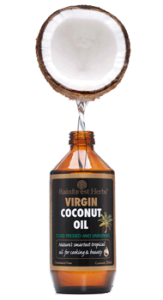 these health issues are greatly increased, especially if they contain the most dangerous of all processed fatty acids, trans fats. Hydrogenated oils, margarines (mentega) and products with the ingredient “vegetable shortening” added should be completely avoided. Only a few short years ago our Doctors and nutritionists were telling us to eat margarine in replacement of butter and to completely avoid coconut oil and coconut milk, yet we continue to believe them when they now recommend to consume more Omega 6 vegetable oils, despite all the current science and obesity statistics showing us a different story. To get the full benefit from Coconut Oil in your diet you need to wean off the addiction to cheap processed Omega 6 polyunsaturated vegetable oils and aim to remove them from your shopping cart entirely. The high Omega 6 vegetable oils are: Corn Oil, Peanut Oil, Safflower Oil, Soyabean Oil, Sunflower Oil, Canola and all hydrogenated fats and margarines. To achieve this healthy change we need to cook with Coconut Oil and it is for this purpose that offer both Odourless Cococonut Oil and Virgin Coconut Oil for all your cooking requirements.
these health issues are greatly increased, especially if they contain the most dangerous of all processed fatty acids, trans fats. Hydrogenated oils, margarines (mentega) and products with the ingredient “vegetable shortening” added should be completely avoided. Only a few short years ago our Doctors and nutritionists were telling us to eat margarine in replacement of butter and to completely avoid coconut oil and coconut milk, yet we continue to believe them when they now recommend to consume more Omega 6 vegetable oils, despite all the current science and obesity statistics showing us a different story. To get the full benefit from Coconut Oil in your diet you need to wean off the addiction to cheap processed Omega 6 polyunsaturated vegetable oils and aim to remove them from your shopping cart entirely. The high Omega 6 vegetable oils are: Corn Oil, Peanut Oil, Safflower Oil, Soyabean Oil, Sunflower Oil, Canola and all hydrogenated fats and margarines. To achieve this healthy change we need to cook with Coconut Oil and it is for this purpose that offer both Odourless Cococonut Oil and Virgin Coconut Oil for all your cooking requirements.
Animal fats from meat consumption have been the mainstay of the human diet and allowed for our early ancestors to evolve the brain size we have today. All traditional cultures have highly valued fat from meat sources above all other foods and they did not suffer from many of the diseases of our modern civilization. An excellent book on this subject is Primal Fat Burner by Nora Gedgaudas.
Checkout our Rainforest Herbs Virgin Coconut Oil Brochure here
More fresh vegetables & low GI fruits
 A balanced diet begins with consuming a larger proportion of our calories from high fiber, low glycemic vegetables, preferably organic and the general rule is to go for the full spectrum of colours with emphasis on the greens and reds. These include: Asparagus, bean sprouts, broccoli, cabbage, cauliflower, celery, cucumber, spinach, onions, garlic, green leafy vegetables, peppers, chillies, mushrooms, tomatoes and green beans. Potatoes and starchy vegetables should be low on the list as they are highest on the glycemic index. Fruits should include the high antioxidant and nutrient dense fruits and berries with a low glycemic index (GI). Take only fresh and avoid all canned fruits and processed fruit juices. Fruits can be avoided initially when trying to lose weight. Fructose is one of the main offenders in stimulating our genetically programmed tendency to gain weight and the use of high fructose corn syrup in juices, soft drinks (and processed foods) is increasingly seen as THE major contributing factor in global obesity, and also as a trigger for high uric acid, hypertension and other metabolic disorders.
A balanced diet begins with consuming a larger proportion of our calories from high fiber, low glycemic vegetables, preferably organic and the general rule is to go for the full spectrum of colours with emphasis on the greens and reds. These include: Asparagus, bean sprouts, broccoli, cabbage, cauliflower, celery, cucumber, spinach, onions, garlic, green leafy vegetables, peppers, chillies, mushrooms, tomatoes and green beans. Potatoes and starchy vegetables should be low on the list as they are highest on the glycemic index. Fruits should include the high antioxidant and nutrient dense fruits and berries with a low glycemic index (GI). Take only fresh and avoid all canned fruits and processed fruit juices. Fruits can be avoided initially when trying to lose weight. Fructose is one of the main offenders in stimulating our genetically programmed tendency to gain weight and the use of high fructose corn syrup in juices, soft drinks (and processed foods) is increasingly seen as THE major contributing factor in global obesity, and also as a trigger for high uric acid, hypertension and other metabolic disorders.
 Healthy Protein (only organic and grass-fed) and not too much!
Healthy Protein (only organic and grass-fed) and not too much!
One of the biggest misconceptions about Keto, Paleo and LCHF Diets is that they are high meat diets, and such people often compared them with the Atkins Diet. This comparison is only made by those who have only a superficial understanding, normally old school dieticians who are stuck in their outdated dietary paradigm from the 1980’s! It is recommended to avoid consuming more protein than we require for our bodies daily needs as excess protein may also contribute to weight gain (via being converted to glucose and stored as fat) and if not balanced out with sufficient healthy fats and vegetables may lead to high uric acid levels and health problems down the line. More info on achieving the right balance of macronutrients can be found on most Paleo and Keto blogs.
Source preferably from organic, free range / non-contaminated Meat, Fish and Eggs: If the animal eats grass its whole life then this will support a healthier omega-3 fat and nutritional profile. Conversely, an animal fattened with corn meal and other grains will have a higher inflammatory omega-6 fat profile. A healthy tip for frying or barbecue is to cook with virgin coconut oil to reduce free radical formation from oxidation.
Dairy: The same applies to dairy products and if possible source milk products from grass-fed animals. If a known intolerance to dairy products (milk, butter, cheese, yoghurt etc) exists then they should be avoided entirely as this leads to issues with immunity, inflammation, allergies and possible leaky gut & microbial imbalance in our all important gut microbiome.
From Vegetable Sources: See Legumes below.
From Protein Powders: In general we can obtain sufficient protein just from our diet and this applies even for professional bodybuilders and athletes. Despite their marketing success, many protein powders contains ingredients that may be detrimental to health, such as soya protein.
Sugar – best to avoid or limit to only coconut sugar on special occasions
One of the main principles of the Paleo, Keto and low carb lifestyles is to restrict sugars, refined carbohydrates and starches so we can activate a metabolic state whereby we can burn fat for energy. This does not mean we stop eating carbohydrates but that we place a daily limit according to our needs and improve the quality of the carbohydrates to consume more high fibre non starchy vegetables.The terminology we often use is net carbs which means the amount of carbohydrates minus the fiber content.
Reducing sugars and carbohydrates allows the body to activates an alternate source of fuel with multiple health benefits, fat, as described above. Sugars are also being increasingly understood to promote many of the inflammatory health issues for which saturated fat has been blamed in the past. The very first job of anyone wanting to improve their family’s health is to remove all white sugar and sugary drinks from their kitchens, even packaged fruit juices. This may be replaced with keto friendly no-calorie sweeteners such as Erythritol, Lou Han Guo (Monkfruit) and Stevia.
High glycemic sugars, such as refined white sugars from sugar-cane and corn, are the main cause of obesity and metabolic health issues today, so it’s essential to improving our family’s health to improve the quality and reduce the quantity of sugar that we consume. No white sugar, no processed brown sugar either (it’s not much different to white sugar). Processed foods are usually full of refined sugars and the worst of all is high fructose corn syrup. Clever marketing terminology hides sugars in processed food and drink labeling behind words such as; fructose (“fruit sugar”) and sucrose (“table sugar”) as well as dextrose, corn syrup, high-fructose corn syrup, sorbitol, fruit juice concentrate, honey, galactose, lactose, polydextrose, mannitol, sorbitol, xylitol, maltodextrin and turbinado sugar. While raw honey is OK in moderation and contains other important micro-nutrients, look for organic certified and avoid the processed honeys that have been heated at temperatures that destroy much of their health benefit (honey also has a much higher GI of 61). A big NO to artificial sweeteners should go without saying as they are at odds in every way with a healthy unprocessed food diet. As mentioned earlier, refined fructose in the form of high fructose corn syrup (with a GI of 87) is a major offender in the global obesity epidemic as it acts as a major trigger for weight gain.
Coconut Sugar: For those not intending to reach ketosis and with moderation in mind, this can be replaced with Coconut Sugar due its healthy low glycemic index of 35 (the same as a raw carrot and significantly lower than most fruits) making it the healthiest of all sugars. It is made from the flower sap of coconut trees and is unprocessed, as only the water is removed, nothing else.
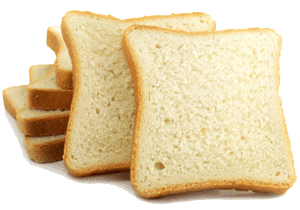 Bread, Grains, Rice etc – best to avoid entirely (or try making Keto Bread instead)
Bread, Grains, Rice etc – best to avoid entirely (or try making Keto Bread instead)
This is the often the aspect of the Paleo and Ketogenic diets that generates the most resistance in people when they first hear about it. While some cultures in Asia, such as Vietnam and Japan, traditionally consume relatively small amounts of rice or rice noodles as part of an overall balanced diet, the majority of Asians are today consuming highly refined grains for breakfast, lunch and dinner. The rise in obesity in Asia is catching up with Western levels. In Malaysia, excess grains and sweet foods has led to Malaysia being the most overweight of all Asian countries.
Why do grains cause us to gain so much weight? Humans have spent more than 99% of our human genetic history as hunter-gatherers with no cultivated grains in our diet. For hunter gatherers their dietary carbohydrates came almost exclusively from honey, seasonal fruits, vegetables and nuts sourced from the wild. Our hunter-gatherer ancestors had to deal with dwindling resources, climate changes, drought and famine and as a result they genetically evolved efficient weight storage strategies to survive. The ones who could store energy as fat during good times with ample food supply, could survive better in times of famine (or long sea voyages). In this was we have evolved specific genetic triggers to store fat. In the time before grains, the main fat triggers for our ancient ancestors was sugar, specifically fructose from fruits and honey, which were the only highly sweet foods they had seasonally available. Our sweet craving obsession is a further sign and when our bodies consume excessive sweet foods (and grains) it triggers our metabolism to slow down even further to assist the weight gain process, including reducing energy and promoting a sedentary lifestyle (couch potato syndrome).
 The very fat storage mechanisms that have evolved to ensure our survival are now killing us through obesity, metabolic syndrome, diabetes and arteriosclerosis. This is because for the last few thousand years we discovered agriculture and created through trial and error a range of calorie rich sweet grain crops (rice, wheat, corn etc.) and have made these the staples of our diet thus triggering our fat storage genes on a global scale. Our “grain free” heritage can also be seen by the fact that upwards of 10% of the human population has not yet evolved to process gluten from wheat, barley and rye that manifests as gluten intolerance in the form of indigestion, bloating, wind, diarrhea and joint aches after eating gluten rich foods. One needs only to Google “gluten free foods” to see how prevalent this issue is with more than 40 million website results.
The very fat storage mechanisms that have evolved to ensure our survival are now killing us through obesity, metabolic syndrome, diabetes and arteriosclerosis. This is because for the last few thousand years we discovered agriculture and created through trial and error a range of calorie rich sweet grain crops (rice, wheat, corn etc.) and have made these the staples of our diet thus triggering our fat storage genes on a global scale. Our “grain free” heritage can also be seen by the fact that upwards of 10% of the human population has not yet evolved to process gluten from wheat, barley and rye that manifests as gluten intolerance in the form of indigestion, bloating, wind, diarrhea and joint aches after eating gluten rich foods. One needs only to Google “gluten free foods” to see how prevalent this issue is with more than 40 million website results.
Excess dietary grains and sugars along with sedentary lifestyles has backfired on our genetic tendency to store energy for times of hardship that do not come.
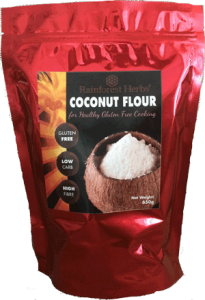 We cannot lose weight while continuing to eat grains for breakfast, lunch and dinner. When we replace grains with healthy low glycemic vegetables as our foundation, together with good quality fats, protein, nuts and low GI fruits, then to that degree can we see permanent, healthy and satisfying weight loss and improvement in health. For making healthy deserts or baked goods try using our Rainforest Herbs Coconut Flour along with other nut flours for healthy low-glycemic cooking. Check out this fantastic Coconut Flour Psyllium Bread recipe here!
We cannot lose weight while continuing to eat grains for breakfast, lunch and dinner. When we replace grains with healthy low glycemic vegetables as our foundation, together with good quality fats, protein, nuts and low GI fruits, then to that degree can we see permanent, healthy and satisfying weight loss and improvement in health. For making healthy deserts or baked goods try using our Rainforest Herbs Coconut Flour along with other nut flours for healthy low-glycemic cooking. Check out this fantastic Coconut Flour Psyllium Bread recipe here!
The rule of thumb is to look at your waist and adjust your grain intake accordingly. Once your weight loss goals have been achieved then you may introduce complex carbohydrates that have a low glycemic index and break down slowly (brown rice, wholegrain bread etc.) and of course, we need to increase our activity to match any surplus energy intake to avoid a repeat trigger of our fat storage tendency.
Dairy Products – only if not allergic
Only grass-fed milk and butter from free range cows. Grass feeding improves the quality of cow’s milk, and makes the milk richer in omega-3 fats, vitamin E, beta-carotene, and CLA (a beneficial fatty acid named conjugated linoleic acid). If you have difficulty with lactose intolerance or milk allergy then use Coconut Butter and Coconut Milk instead. While the global consumption of dairy products has allowed for improvements in dietary calcium intakes, it has come at a costly price. Dairy products today are a far cry from 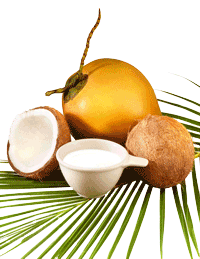 the dairy products of 100 years ago. Dairy products have become one of the most allergenic & inflammatory components of our modern diets. This has resulted from a combination of a genetic trait whereby a large proportion of humans produce insufficient lactase to break down the sugars in milk, particularly in adulthood, as well as the processing methods of dairy products that makes them less digestible. Wherever possible look for organic milk, butter and cheese from grass fed dairy cows or use only fermented dairy products such as “live” yoghurt. Once a milk allergy or lactose intolerance is known however it is very difficult to reverse this and even relatively small amounts of dairy products can trigger allergies, mucous production and inflammation. Coconut Butter and Coconut Milk taste great and is the chief ingredient in tropical deserts as well as Asian curries and makes a healthy replacement as it contains more than 20% virgin coconut oil. Try making your own Dairy-Free Coconut Yoghurt by warming coconut milk and adding several capsules of live probiotic cultures and keeping in a warm place for around12 hours. If the culture works then you can keep refrigerated for a few days and enjoy as an important part of your Paleo Diet.
the dairy products of 100 years ago. Dairy products have become one of the most allergenic & inflammatory components of our modern diets. This has resulted from a combination of a genetic trait whereby a large proportion of humans produce insufficient lactase to break down the sugars in milk, particularly in adulthood, as well as the processing methods of dairy products that makes them less digestible. Wherever possible look for organic milk, butter and cheese from grass fed dairy cows or use only fermented dairy products such as “live” yoghurt. Once a milk allergy or lactose intolerance is known however it is very difficult to reverse this and even relatively small amounts of dairy products can trigger allergies, mucous production and inflammation. Coconut Butter and Coconut Milk taste great and is the chief ingredient in tropical deserts as well as Asian curries and makes a healthy replacement as it contains more than 20% virgin coconut oil. Try making your own Dairy-Free Coconut Yoghurt by warming coconut milk and adding several capsules of live probiotic cultures and keeping in a warm place for around12 hours. If the culture works then you can keep refrigerated for a few days and enjoy as an important part of your Paleo Diet.
Nuts and seeds
Very important addition to a healthy diet and great to have on hand for snacks, knock yourself out! This means almonds, walnuts, pistachios, cashews, hazelnuts, pecans, pine nuts, pumpkin seeds, sunflower seeds and my favourite, macadamia nuts. Peanuts are not actually a nut, but a legume (see below).
Legumes / beans / lentils / soya – limit & only if you can digest and men beware of the phytoestrogens
While containing important vegetarian protein sources, these contain varying amounts of a plant defense protein that inhibits the digestion of starches. This is why these foods can create abdominal gas and pain after eating, especially in those with low digestive enzyme production and the elderly. Consider limiting if this is your problem and consume more nuts and seeds to maintain sufficient protein in the diet. In the case of soya beans, they contain relatively high levels and in those with low starch digesting enzymes, may result in abdominal gas. Traditional Asian cultures found a way around this by fermenting soya beans (soya sauce, miso, tempeh etc.) which pre-digests the bean and reduces the enzyme blockers and subsequent indigestion. The other issues around soya and many legumes (and some grains and seeds) is that they contain natural phytoestrogens. While being potentially beneficial for women’s health, especially pre and post menopausal women, they may be detrimental in the long-term to male hormonal health, especially when used as a baby formula or in adult males with low testosterone levels. Soya contains some of the highest phytoestrogens of all common eaten legumes. Soya is also become one of the worlds most genetically modified crops and one can never know for sure the source of their products soya beans. So while soya milk is often used as a cows milk alternative in the lactose intolerant, we recommend using Coconut Milk instead for a truly healthier alternative. Coconut Milk, liquid and dry powder is available in supermarkets worldwide.
Fiber
Fruits, vegetables and nuts provide the highest quality soluble and insoluble fiber in our diets. While the health benefits of fiber is well understood, there is another misunderstanding that Paleo and Keto diets will be insufficient in fiber if you eliminate cereals and grains from the diet. Low glycemic fruits, non starchy vegetables and nuts provide the highest quality source of fiber without causing blood sugar imbalances and weight gain. One of the healthiest sources of insoluble fiber is coconut flour, which supports
Herbs & Spices
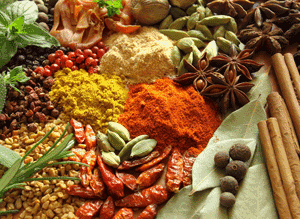 The use of culinary and medicinal herbs in all cultures provides important phytonutrients, antioxidants and medicinal properties to our diets. For example, the combination of Turmeric with Coconut Oil in all Southeast Asian and South Indian curries serves to further prevent bacterial growth in the hot humid environments while enhancing the synergy and bioavailability of the active ingredient in Turmeric, known as Curcumin. Curcumin has been subject to close to five thousand scientific studies, many of which have confirmed its broad spectrum antioxidant and anti-cancer effects. Our Rainforest Herbs range of medicinal products are all formulated to provide concentrated herbal antioxidants and phytonutrients, as well as supporting hormonal and adrenal function and raising our bodies ability to handle stress. See Rainforest Herbs website here.
The use of culinary and medicinal herbs in all cultures provides important phytonutrients, antioxidants and medicinal properties to our diets. For example, the combination of Turmeric with Coconut Oil in all Southeast Asian and South Indian curries serves to further prevent bacterial growth in the hot humid environments while enhancing the synergy and bioavailability of the active ingredient in Turmeric, known as Curcumin. Curcumin has been subject to close to five thousand scientific studies, many of which have confirmed its broad spectrum antioxidant and anti-cancer effects. Our Rainforest Herbs range of medicinal products are all formulated to provide concentrated herbal antioxidants and phytonutrients, as well as supporting hormonal and adrenal function and raising our bodies ability to handle stress. See Rainforest Herbs website here.
If we have any of the following symptoms or health conditions then we could benefit from implementing Paleo & Ketogenic lifestyle principles:
-
-
- Multiple food allergies / intolerances
- Frequent indigestion & bloating after meals
- Excess weight gain or obesity
- High blood sugar or diabetes
- High LDL cholesterol
- Frequent infections
- Inflammatory conditions such as arthritis, joint pains or skin problems.
-
We recommend that you experiment with as broad a range of coconut products and recipes to discover what actually works for you and your family. Those traditional cultures that have withstood the forces of mass marketing, processed foods and big industry influence and instead faithfully followed the fresh food diet of their ancestors with little or no processed oils, sugars and junk foods enjoy greater health and freedom from chronic disease and metabolic disorders, including diabetes. Examples are found all over the world, most notably in parts of France and the Mediterranean regions where they predominantly use Virgin Olive Oil and processed vegetable oils and margarine never made much headway despite multi-billion dollar marketing propaganda. Similarly, there are parts of the tropics where the principles of the Paleo Diet are a way of life, as Coconut Oil and Coconut Milk make up the main dietary fats with little or no processed vegetable oils and these cultures too (such as in rural coastal areas of Sri Lanka, the Philippines and Southern India) enjoy some of the lowest heart disease and obesity statistics in the world.
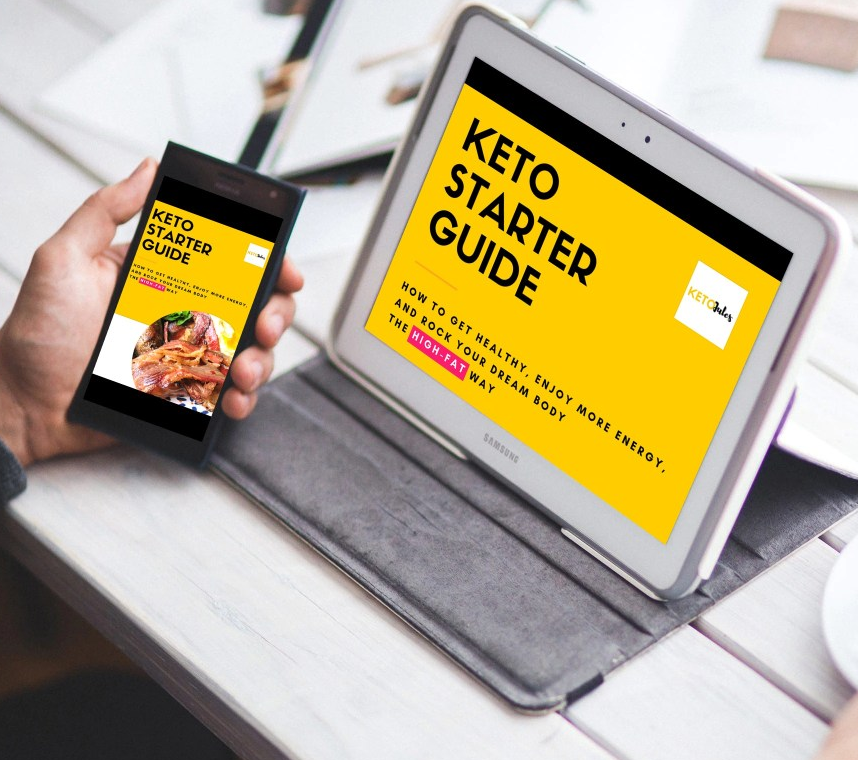 When traditional cultures embrace “Western Diets” then an increase in obesity, heart disease and diabetes can be seen. To get the most benefit from the Paleo / Ketogenic Diet it’s recommended to not only add coconut products to your diet but just as importantly to remove processed junk foods, processed vegetable oils and refined sugars as far as possible.
When traditional cultures embrace “Western Diets” then an increase in obesity, heart disease and diabetes can be seen. To get the most benefit from the Paleo / Ketogenic Diet it’s recommended to not only add coconut products to your diet but just as importantly to remove processed junk foods, processed vegetable oils and refined sugars as far as possible.
For an absolutely fantastic and concise KETO STARTER GUIDE from our very own Malaysian Keto Guru and Blogger, Julie Mokhtar, please visit her website www.ketojules.com


